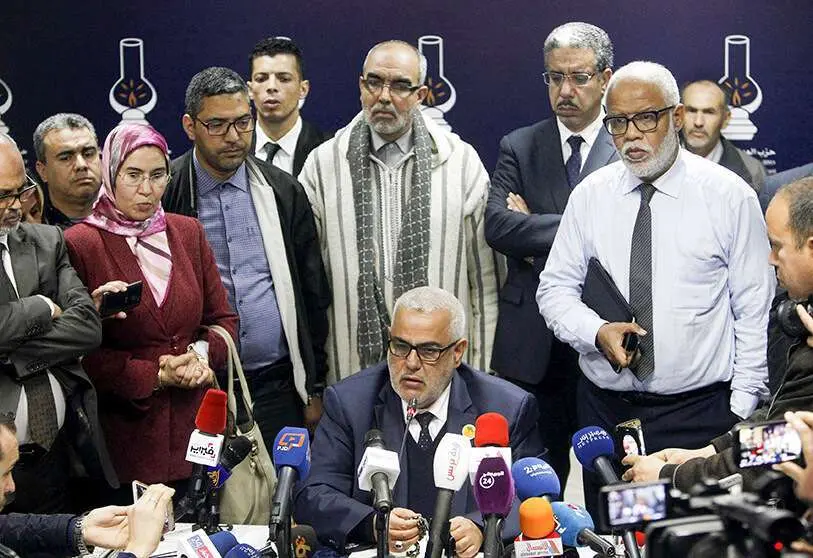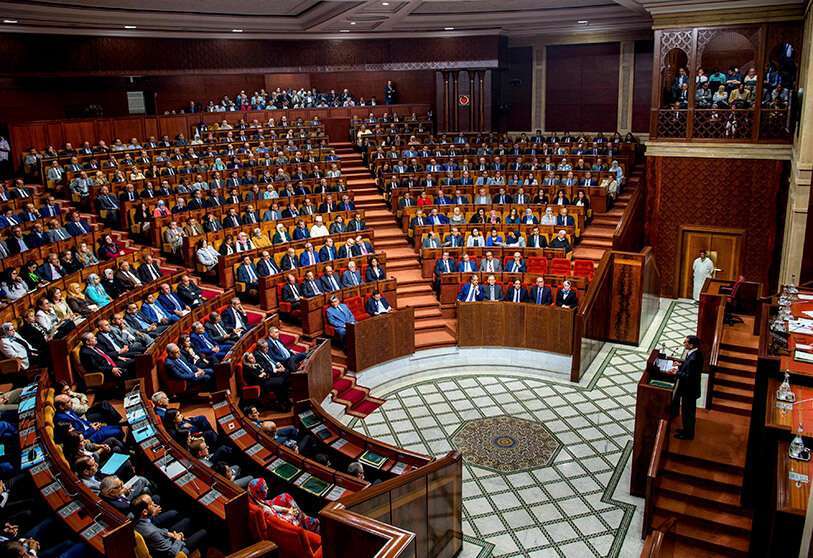El partido islamista marroquí vive sus horas más bajas

The Moroccan Islamist party Justice and Development (PJD), the most voted party over the last decade, is experiencing its lowest hours after the approval of an electoral law that will be harmful to it and the "suspension of militancy" announced yesterday by its historic leader, the charismatic Abdelilah Benkirane.
This crisis situation comes just a few months before the country enters a long electoral cycle, with general, regional and local elections scheduled for the autumn, which will be governed by electoral laws that will cause it to lose dozens of seats under the new distribution system.
The reason that led Benkirane (President of the Government between 2012 and 2017) to suspend his membership of the party he created and which he promoted to governmental responsibilities was surprising: it was in protest at yesterday's approval by the Executive of a law to legalise the therapeutic - but not recreational - use of cannabis.
In a letter written in his own handwriting and sent to the media yesterday, Benkirane also announced the "rupture" with his successor at the head of the party and the government, Saad Eddine El Othmani, as well as other historic leaders of the party such as Mustafa Ramid, Lahcen Daudi and Aziz Rabah, companions for decades in the joys and sorrows of the party.
"This is the first time that the party has entered this tunnel of internal quarrels in which the mechanisms of dialogue are no longer useful," political scientist Mohamed Masbah, director of the Moroccan Institute of Political Analysis, told Efe.
The divorce between the Islamists "is going to affect them negatively", although - Masbah pointed out - it is still a strong, well-organised party with an effective electoral machine, something that the rest of the parties lack".
It is striking that the PJD has accepted in recent years more bitter decisions than the cannabis law, such as the resignation of the most powerful government ministries - in favour of technocrats appointed by King Mohammed VI - or the re-establishment of relations with Israel, announced last December.

However, Abdelalih Hamieddine, considered the party's ideologue, told Efe that the rapprochement with Israel was a decision taken above the government, and the PJD has always been very clear about its motto that "there is no confrontation with the king".
The case is different with the cannabis law, where, he argues, it was not so much the substance as the form that mattered: "It was a decision taken without debate, there was no internal dialogue within the party", which was forced to accept the bill drafted solely by the Ministry of the Interior.
Hamieddine recalled that the party opposed any plans to legalise cannabis in 2016, and since then had not revisited the issue, and any change in its line must be endorsed by the bodies of the PJD, a party that takes pride in practising internal democracy and debate in all its decisions.
In any case, Hamieddine acknowledges that the party is at a critical juncture on the eve of elections, especially when he sees what he called "a G7 of parties" forming against the PJD, as he called the supposed anti-Islamist front put together by secular-leaning parties of the right and left.
Political scientist Masbah adds that the PJD is on its own: "On the one hand, it faces the 'establishment'; on the other hand, it faces the other parties, and neither of them want the PJD to have a third term in office".
Even if the PJD wins the elections, as is likely to happen, "it is very likely that the other parties will refuse to join it in a coalition, making it very difficult for the PJD to form a government".
The PJD has led the government since 2012, with the embers of the Arab Spring still smouldering, but its presence in the government has had more than discreet results, and the image of a mass party that it managed to project just five years ago is a long way off.
For us," Hamieddine concludes, "it is preferable to move to the opposition from now on".








